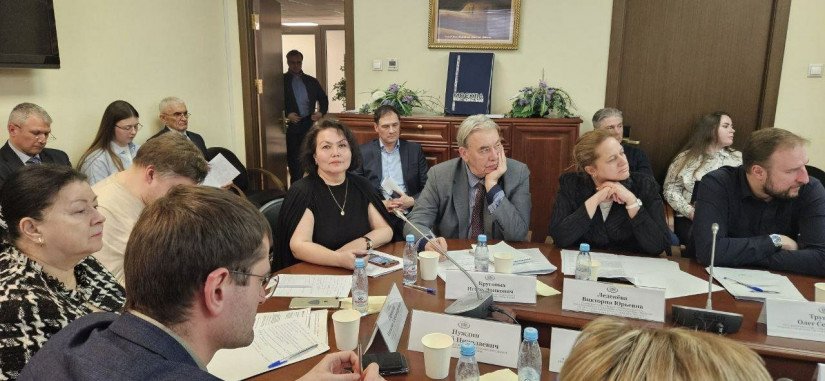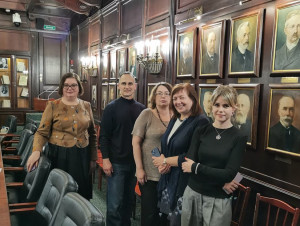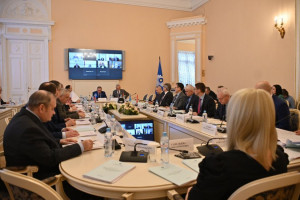Updating of Concept of Common Migration Area of CIS Member Nations was Discussed in State Duma of Russia
21 March 2024

The State Duma of the Federal Assembly of the Russian Federation held a “round table” dedicated to migration processes. During the event, the main directions to make changes to the Concept of the Common Migration Area of the CIS Member Nations, adopted by the IPA CIS in 2012, were presented.
The “round table” was moderated by Chair of the Committee of the State Duma of the Federal Assembly of the Russian Federation on Issues of Nationalities Ildar Gilmutdinov, MPs Anastasia Udaltsova and Roman Teryushkov.
The participants of the event discussed initiatives to improve the normative-legal regulation of education and social protection of children with migration background, to counteract the formation of ethnic enclaves and other issues.
Secretary of the IPA CIS Permanent Commission on Social Policy and Human Rights Evgenia Vladimirova told about the work of the IPA CIS to update the Concept of the Common Migration Area. The Concept will reflect changes in the structure of the employment market of labor migrants, as well as in the characteristics of migration flows between the Commonwealth Member Nations. The process of digitalization of state services in the sphere of migration in the CIS will be noted.
According to the Secretary of the Commission, this year it is planned to prepare a Glossary of terminology and concepts in the field of migration and citizenship, which will contribute to the development of a digitalization of state services in the field of migration in the CIS.
The “round table” was attended by representatives of the Ministry of the Interior of the Russian Federation, the Ministry of Labor and Social Protection of the Russian Federation, the Office of the Commissioner for Human Rights of the Russian Federation, other ministries and departments, whose sphere of activity includes issues of regulation of migration processes; the Eurasian Economic Commission, and the academic community.



